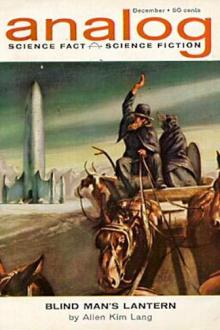IMPERFECTION, Ray Clark [easy to read books for adults list txt] 📗

- Author: Ray Clark
Book online «IMPERFECTION, Ray Clark [easy to read books for adults list txt] 📗». Author Ray Clark
“Stewart was just saying how much you enjoy films, Malcolm. Do you go and see many?”
“I love films, Alan. Always have. I go a couple of times a week. Chris joins me at least once.”
“What sort of films?”
“All sorts of films. What I like about films is that they take you away from reality, show you someone else’s problems for a couple of hours.” Malcolm chuckled. “And they usually have happy endings. I love the black-and-whites mostly. They didn’t rely on special effects, just bloody good stories. They knew how to make them, then.”
“Are you into horror?” asked Briggs.
“I’ve seen a few,” replied Malcolm.
“Remember an actor called Lon Chaney?”
“Who doesn’t?”
Gardener was especially grateful to Alan Briggs for the way he was handling the interview.
“What was so good about Chaney, Malcolm?”
“He was the best, pure magic to watch. They called him ‘The Man of a Thousand Faces’.”
“Why was that?”
“Make-up expert. There wasn’t anything he couldn’t do. He did it all himself, and he used to carry a little black bag around. I did hear that the make-up case is in the Natural History Museum in Los Angeles. But the thing is, nobody knew how he did things. He used to endure such pain and torment just to get the part right. He wore a seventy-pound hump for The Hunchback of Notre Dame, and for The Phantom of the Opera he was said to have pushed discs up under his cheekbones to create the effect.”
Briggs’ expression grew distasteful. “Going a bit far, isn’t it?”
“That was Chaney for you,” replied Malcolm. “He was a perfectionist. That’s probably why he was the highest paid actor in Hollywood.”
Briggs then slid the quotes towards Malcolm. “Do you recognise these?”
Malcolm studied them, but shook his head. “No, but if you don’t mind I’ll write them down and check it out. Do you think they’re from Chaney’s films?”
“Possibly,” replied Gardener.
“Even if they are, Son, and even if the killer is an expert with make-up just like Chaney was, it still doesn’t tell you why he’s doing it, or who he is.”
“True,” offered Briggs. “But if we know that’s where he’s heading, we may find something in Chaney’s past that will give us a clue. Was Fletcher ever into that kind of thing? You know, make-up and acting?”
“No. Not in the time that I knew him. He was a bookworm. Why? You don’t think he’s your man, do you?”
“That’s why we need to find him, Malcolm. If he isn’t the killer, he could be the next victim. If he is...” Briggs left the sentence unfinished, leaving Gardener aware of the implications. He knew his father well enough to know that he, too, would have worked out the answer. “Have you heard of a director called Wallace Henry Corndell?” Briggs asked.
“Yes. That’s who Leonard White sold his house to.”
“What about William Henry Corndell?”
Malcolm paused before answering. “There’s no director of that name.”
“Not a director, Dad, an actor,” said Gardener.
“I don’t recognise him as an actor, either. What’s he been in?”
“Mostly theatre work,” replied Gardener. “But I get the feeling he’s living off his dad’s reputation, and I can’t find reference to anything he’s been in. He reckons he was in Phantom in the West End before Michael Crawford.”
“I thought Crawford was the first,” replied Malcolm.
“So did I.”
“And you suspect he’s lying? Do you think he’s the killer?”
“Well if he is, it’ll take some proving,” replied Gardener. “We have very little evidence against him.”
Malcolm snapped his fingers loudly. “That film that was banned by the watch committee. I know why I can’t remember much about it, I wasn’t there.”
“Why?” asked Gardener, suddenly feeling awkward, as if he should know the answer himself.
“I was in hospital, don’t you remember? I was landscaping for Leonard White at the time, the property in Horsforth, Corndell’s huge place. I landscaped the grounds for him when the drains gave way and collapsed. I fell in and broke both my legs.”
Gardener did remember. His application for the police force had been accepted, but his start date was delayed so as he could help his father to recuperate. “Can you remember why the ground gave way?”
“From what I heard, the house had a series of tunnels running underneath it.”
“Anything confirmed about the tunnels, why they were there?” asked Briggs.
“I’ve no idea,” said Malcolm. “Harry Fletcher came to see me in hospital. He had his book with him and he told me about a film they’d had to ban. Apparently, it was the most horrific thing they had ever seen.”
“Can you remember anything else about it?” asked Briggs.
“No. It was such a long time ago. But I’m sure the records will be kept somewhere.”
“Even from thirty years ago?” asked Briggs.
“It’s a long shot, but it’s worth a try.”
“Makes sense,” said Gardener, “if the director had his film banned. But surely it wouldn’t have caused that much trouble. Wouldn’t he have simply edited it?”
“I don’t think he did,” said Malcolm. “There was more to it than that. I’m sure Harry said there was bad blood.”
“Maybe we’re on to something, Stewart,” said Briggs. “See if you can trace the records, and while we’re at it, let’s tighten up our search for Fletcher. If he still has the diary, that may be one reason why we can’t find him. It might hold the biggest clue we have.”
“Let me trace the records,” offered Malcolm. “I’d have a better idea where to look than you. Besides, my name may still carry a little bit of weight.”
“If you’re sure?” asked Gardener.





Comments (0)